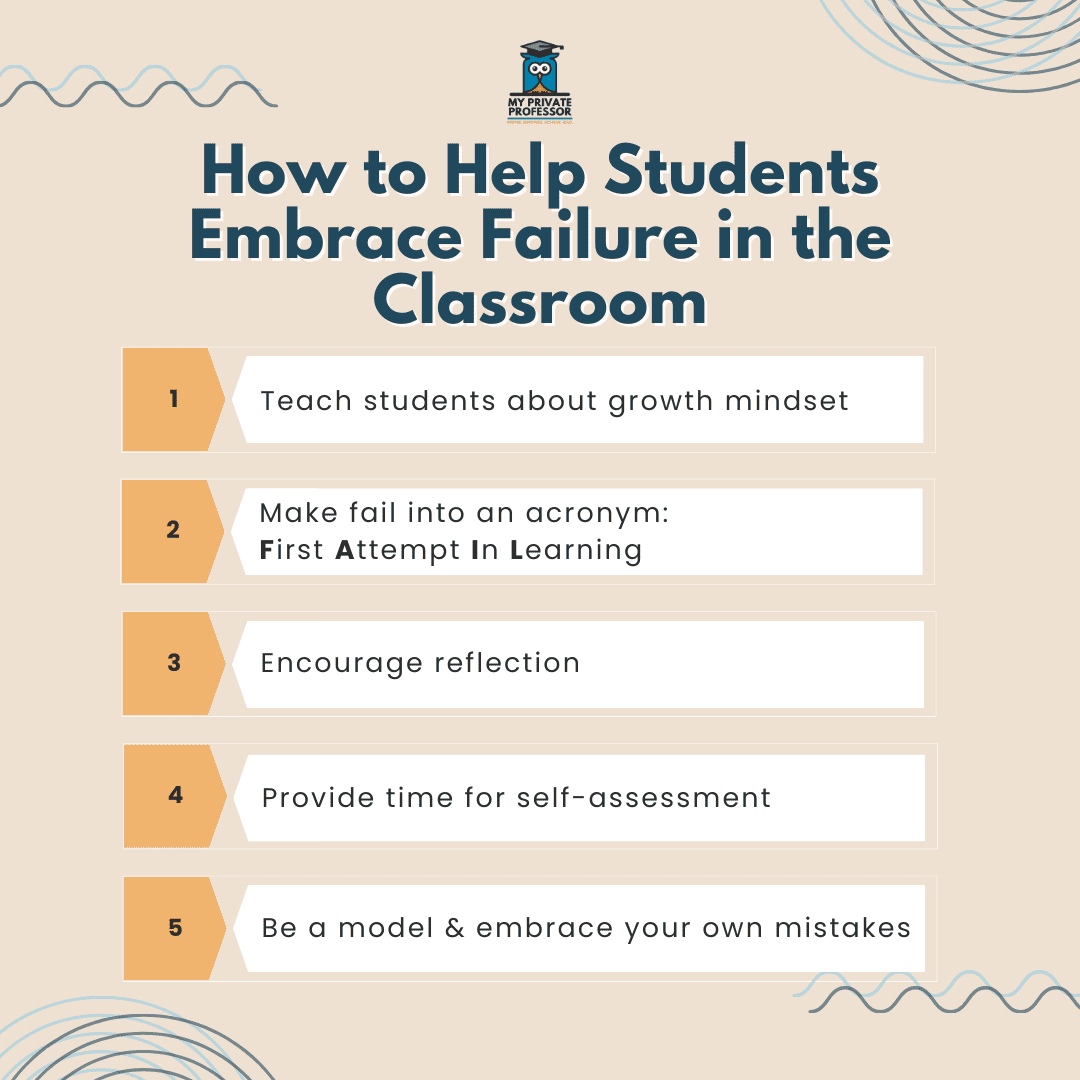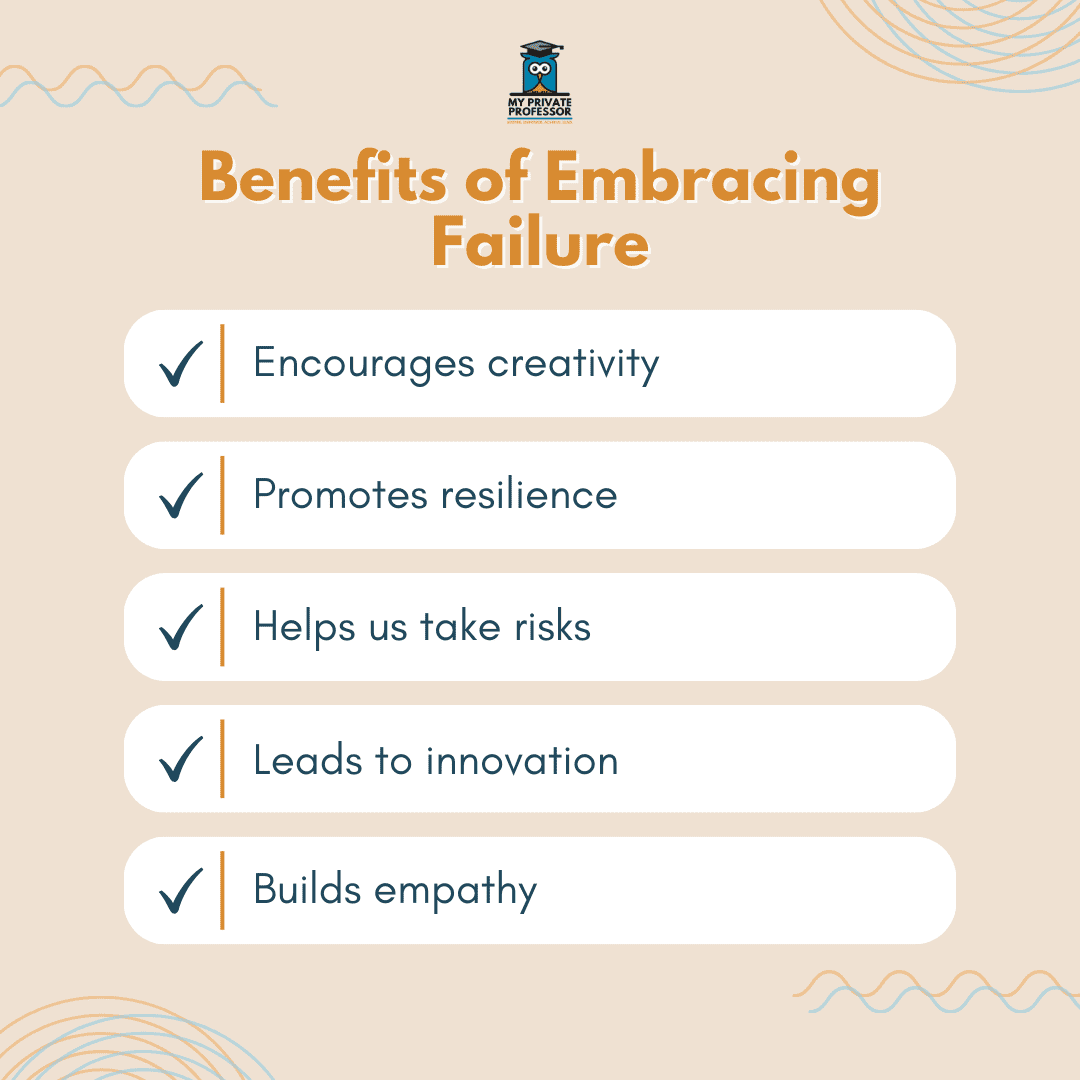People are always talking about how failure is not only important, but necessary for growth. And that sounds great in theory. But one thing gets in the way: we hate failing!
We’re encouraged to embrace failing in order to advance in life. But this is easier said than done when you’re actually faced with having your inability to eliminate endless TikTok scrolling from your life.
Failing: good in hindsight, challenging in theory
If I put my mind to it, yes, I can see how certain failures and mistakes have helped me grow.
In high school, for example, after three seasons of trying out for the varsity basketball team, I cut my losses and decided to try track and field. At the time, I was definitely a bit frustrated that all my work amounted to running 123445930 miles a day with an all-inclusive (no cuts or tryouts) team. Years later though, I’m still training for longer races and loving it.
So, I guess you could say my failure to make the varsity basketball team led to something great.
But that’s looking back now. That’s in hindsight. If I were to say that I felt empowered or content at the time, I’d of course be lying!
If failure can inspire a profound moment of self-realization, why does it feel so crappy in the moment?
Why do we hate failing?
Failing can yield cognitive dissonance
It’s almost impossible to avoid putting expectations on ourselves. And to some extent, expectations are good. They hold us accountable, they give us something to work toward, and they push us to tap into our strength.
But of course, creating too many expectations can lead to disappointment. When you identify a gap between what is and what you feel should be, you probably experience an uncomfortable feeling of dissonance.
Imagine taking a math test and telling yourself that finally, you’ll get a perfect score, and you won’t settle for anything less. Then, when you don’t get your 100% (after seeing that, as always, your teacher threw in a trick question), you’re a bit peeved and probably disappointed in yourself.
While nurturing confidence in life is a must, you can certainly hype yourself up while still accepting that certain things in life are simply out of your control.
Although it might feel slightly uncomfortable to acknowledge that particular outcomes aren’t certain, it’ll be well worth it when the day comes that things don’t, in fact, go as planned or expected.
Basically, it’s critical to get to a place where you’re not feeling like you’re going to die if you don’t live up to your expectations. Consequently, you’ll spend less time brooding over your mistakes, and more time learning from them.
We’re wired to pick the easy route
Have you ever wondered why, when you accidentally see that your friend circled ‘A’ as a multiple choice answer on a Bio test, even if you’re confident in your initial choice of ‘C’, you have a hard time forgetting what you saw?
We do this largely because it’s our perception that choosing the answer that we see someone else approve of is easier than trusting our own decision and then having to take responsibility for the outcome.
As humans we’re hardwired to opt for the path of least resistance. We have an innate tendency to pick the option that makes us feel good in the moment. So when you see your friend choose an answer, you feel that you’re picking an approved answer if you choose it too.
This is in part due to the limbic system, a powerful part of the brain that pushes us to run from unpleasant situations, and toward pleasant ones. And it functions automatically.
So the tendency to avoid the unpleasant things in life, like facing failure, is embedded within us. It’s not an innate failure on our parts, but simply a biological experience.
Societal perceptions impact our perception of failure
It’s odd to come to the realization that, societally, we’ve stigmatized failure, an undoubtedly universal human experience.
In his Ted Talk, Aaron Perri discusses how our perception of failure has evolved over time. He explains that in the 1920s, when happiness was peaking, you didn’t hear much about failure.. But when the Great Depression hit, the topic was omnipresent.
Perri notes that in the 1980s, we started seeing failure decrease as a topic of conversation. It seemingly became taboo. According to Perri, this is the period when we adopted the “everyone’s a winner” mantra.
Building self-esteem is, of course, critical for success. But where is the line between boosting self-esteem and painting a false picture of life?
“We want to encourage effort, especially among young kids,” explains Jean Twenge, author of The Narcissism Epidemic: Living in the Age of Entitlement. “But the ‘everybody gets a trophy’ mentality basically says that you’re going to get rewarded just for showing up. That won’t build true self-esteem; instead, it builds this empty sense of ‘I’m just fantastic, not because I did anything but just because I’m here.’”
Perhaps, then, having this mindset where we act like failure doesn’t exist is a form of toxic positivity.
It also seems like social media has exacerbated this common notion. You’re much more likely to see your friend post about her zen, enlightening trip to India than about her unsuccessful week of job interviews. Because largely, we post the best versions of ourselves.
At the end of the day, our distaste for failing doesn’t stem only from the fact that our brains were wired to run from failure. It’s also rooted in our societal perception.
A universal problem: ruminating over failure
In theory, we like to think that, when faced with failure, we can acknowledge our disappointment, devise next steps, and move on. But it can be easy to dwell on failure past the point of it being healthy.
It seems like a lot of us, after failing, are very hard on ourselves. And I think this is us punishing ourselves. We believe that because we didn’t live up to our expectations, we deserve it.
But at some point, as you probably know, this isn’t getting us anywhere!
As research finds, rumination can negatively affect mental health. In school, heavily focusing on failures is a major reason for performance declines.
Thinking of nothing other than the big fat ‘F’ on your Chemistry test for two weeks straight isn’t going to help your mindset or your performance. Instead, what if you were to give yourself a certain window of time to dwell on your failure? And then once that window is closed, what if you were to start thinking about next steps?
Why we need failure
Each time you fail, you shed your skin and evolve, growing stronger.
Living without embracing your failures is like eternally walking around with a blindspot.
Despite the uncomfortable feelings that it can evoke, failing is important. And the sooner we accept that, the better. Because as we continue beating ourselves up over not finishing those five miles we committed to running, we’re wasting time!
Failure…
- Pushes us to consider new ideas.
- Encourages us to reflect on and question our decisions and actions.
- Empowers us to think outside of the box.
- Forces us to practice resilience.
We need failure.
How does failure empower students?
Failure empowers students to develop grit.
Try to think of failing like you would a — more than slightly — painful, yet effective HIIT workout. It hurts in the moment, but is good in the long run.
And just like in the middle of a burpee set, when you fail, you might want to drop everything and run. But when you power through, you’re better for it.
Each time you embrace your failures, you’re practicing delayed gratification. You’re accepting your current situation, and embracing that your win will come later.
Research on the importance of grit
In her research, psychologist Angela Duckworth determined that grit is a significant predictor of academic success, even more so than IQ. She also found that grittier students are more likely to have higher test scores, get higher degrees, and have fewer career changes.
In the famous Marshmallow Experiment, researchers also found grit to be a critical factor for success.
In the study, the researchers gave children one marshmallow and then left for a period of time. The researchers told the children that if and only if they didn’t eat the marshmallow, they would get another one.
Only a few children restrained themselves (can you blame them?). Then, the researchers tracked these participants for years, conducting follow-ups and observing progress.
The researchers found that those who were willing to wait for the second marshmallow (thus exhibiting grit by practicing delayed gratification) had:
- Higher SAT scores
- Lower levels of substance abuse
- Lower likelihood of obesity
- Better responses to stress
- Better social skills
- Better scores in a range of other life measures
Failure urges students to self-reflect.
Let’s be real — it’s easy to forget to do the work and reflect on what you could be doing better. If everything is working, then you might not ever feel a need to reflect. And really, why would you want to, when you could be doing something fun, like sunbathing?
Failing though, reels us in to do the work. And this self work can empower you to identify what’s working and what isn’t, and then make positive changes in your life.
Failure forces students to look at their weaknesses.
There’s no getting around the fact that when you fail, the spotlight shines on what you did wrong and how you didn’t meet particular expectations.
You can, of course, blindly keep on walking without stopping.
But when you face your failure head on, you learn. Your mistake is an important tool here. So take it, and you use it to identify why you may have failed, and how you’ll do better next time.
How to embrace failure
Understanding that embracing failure is beneficial is good, but how do you actually put that into practice?
Change your mindset around stress
In the age of efficiency and productivity, we can all agree that stress can be as omnipresent as TikTok ads.
While it’s helpful to have coping mechanisms that you can use to overcome stress on a regular basis, there’s something even more important to remember. Stress is a natural reaction, and something that we can’t ever fully eliminate. And this isn’t necessarily a bad thing!
Societally, we’ve turned stress into the enemy. Remember: science tells us that we’re hardwired to run from unpleasant or harmful things.
We’re always hearing about how stress can cause anything and everything. But research has found that this isn’t necessarily true, and that reframing your perception of stress can eliminate the chance of your stress causing significant issues.
One study found that people who experienced a lot of stress in the past year had a 43% increased risk for dying. But, that was only true for people who believed that stress was harmful to their health. People who had a lot of stress in the past year but did not view stress as harmful to their health were actually at the lowest risk for dying out of anyone in the study.
Similarly, a Harvard Study found that if participants viewed stress as a helpful response, when completing the “social stress test,” they felt less overwhelmed and more confident.
When stress knocks on your door, you can either battle it, or let it help you. And the latter option will likely help you achieve your goals and become a better you.
Next time you fail, think about the ensuing stress as your body’s natural way of preparing you to take action.
Plan for failure
When you, at least in the back of your mind, recognize that failure is a possibility, you’ll be less likely to beat yourself up if it happens. And then you can better learn from the experience and as a result, leverage your takeaways for growth.
Don’t get me wrong: you should still believe in yourself and regularly build your confidence up. But who said you can’t do that while also being prepared for any outcome — even the undesirable ones?
Stop taking it personally
Have you ever prepared yourself so incredibly well for an in-class essay, but wound up getting a less-than-perfect score? Ever not gotten a job even though you were fully prepared for the interview and had all the necessary skills and experience?
When you were down in the dumps, did you blame yourself?
In psychology, this is called personalization — when we place blame on ourselves for things outside of our control. And it stems from the fact that we only have one lens (our own) through which we see the world. Since we are the center of our world, we often end up thinking only about our role in situations.
If you did prepare yourself as much as possible, then that’s it. That’s all you can do. So rather than taking the failure personally and wasting your precious cognitive resources, embrace your effort, and move forward.
Focus on the journey, not the destination!
Modern technology has changed life as we know it, and in so many positive ways. Technology provides us with access to more information, fosters efficient communication, and enables us to transfer money with the click of a button. The key theme here is efficiency.
As a result, we’ve seemingly become accustomed to faster, more immediate happenings.
Is it possible that, as a result, we’re getting more impatient? Research has shown that our collective attention span is declining. And considering how closely linked patience and attention span are, it seems probable that we’ve also become more impatient.
With all of the quick responses, notifications, and pings from our phones, we’ve normalized instant gratification. And our brains love and crave instant pleasure — which is why you may find yourself yet again opting for a greasy slice of pizza, instead of the salad you swore you’d eat.
Meanwhile, it seems that something else is feeding into our need to always feel good. In school, we focus a lot on empathy. But what this often boils down to is making sure everyone always feels good.
Don’t get me wrong, it is critical to develop empathy in any community. But if we’re constantly preaching the idea of always feeling good, then we’re putting students at a disadvantage. Because as we know, in the real world, they simply won’t always feel good!
To help students feel good in the long run, we must promote grit, perseverance, and a growth mindset. Essentially, it boils down to recognizing a bona fide truth which Adam Russo notes in his Ted Talk: “life isn’t instant.”
Final thoughts
At the end of the day, the world is always evolving, and so are we. Failure is a reflection of this. We don’t stay in one place. We’re transient beings — forever changing. So when we do evolve, we need to give ourselves grace and embrace the trail-by-error method.
Failure is simply the reflection of inevitably imperfect journeys in an inevitably imperfect world.








